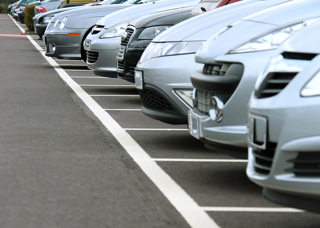There were some 2,500 fewer new cars registered to fleets in October, leaving registrations a third down on where they were this time last year.
New figures from the Society of Motor manufacturers and Traders (SMMT) show that 80,523 new cars were registered to fleet and business, compared to 83,067 in October 2019.
The number of registrations was, however, almost 34% higher than the 60,422 units bought by private motorists and equated for 57% of the overall market.
Year-to-date, fleet and business registrations (728,462) are now 34% lower than the 1.1 million new cars registered in the first 10 months of 2019.
Overall, the industry recorded 140,945 new registrations last month, making it the weakest October since 2011 and 10% lower than the average recorded over the last decade.
SMMT says that the arrival of new models and ongoing financial incentives helped initially to sustain UK demand in the month, but the introduction of a ‘firebreak’ lockdown in Wales on October 23, contributed to the nation recording 25.5% fewer registrations by the end of the month, which accounted for more than half of the overall UK decline.
As of mid-October, the industry had been expecting to register about 1.66 million new cars in 2020. However, with the announcement of a second lockdown for England, which will include the closure of vehicle showrooms, the market forecast has been downgraded by a further 100,000 units to 1.56 million. This equates to a total year-on-year decline of around 750,000 registrations and a £22.5 billion loss in turnover, with 2020 now likely to be the weakest year since 1982.
Mike Hawes, chief executive at the SMMT, said: “When showrooms shut, demand drops, so there is a real danger that with England today entering a second lockdown, both dealers and manufacturers could face temporary closure.
“What is not in doubt, however, is that the entire industry now faces an even tougher end to the year as businesses desperately try to manage resources, stock, production and cashflow in the penultimate month before the inevitable upheaval of Brexit.
“Keeping showrooms open – some of the most Covid-secure retail environments around – would help cushion the blow but, more than ever, we need a tariff-free deal with the EU to provide some much-needed respite for an industry that is resilient but massively challenged.”
In terms of powertrains, some one in six new cars registered was diesel, while plug-in vehicles, both PHEV and pure electric new registrations, accounted for 12% of the market.
Ashley Barnett, head of consultancy at Lex Autolease, says that the decline in registrations for a third consecutive month paints a “concerning picture for the motor industry”.
“With the uncertainty around additional lockdown measures and consumer spending looming large, the short-term future looks challenging,” said Barnett.
“Despite this, the continued rise of electric vehicles on the UKs roads is a glimmer of hope. We are seeing an increased interest in EVs among our customers as they begin to realise that alternative-fuelled vehicles can work for them.
“Barriers to adoption including vehicle choice and range anxiety seem to be disappearing as drivers become more educated on the benefits of making the switch.
“The figures also suggest that the measures to reduce tax to 0% on zero-emission company cars for 20-21 have worked to incentivise drivers to make the transition now.
“However, it’s important to understand that the total number of EVs on the UK’s roads still only accounts for 5.5% of vehicles. Clearly, we’ve got a lot of ground to make up.”
Jon Lawes, managing director of Hitachi Capital Vehicle Solutions, welcomed the continued demand for electric and hybrid vehicles, up 143.9% compared to this time last year, despite the challenging circumstances.
“This long-term growth demonstrates to the industry and Government that consumers and business see real alternatives to diesel and petrol vehicles,” said Lawes.
“To keep this momentum in line with the growing number of electric and hybrid models coming to market, we are calling on the Government to collaborate more effectively with our industry to develop the charging infrastructure which will adequately support, and accelerate the transition to EV’s and crucially, provide both business and consumers with the confidence that EV’s are operationally viable replacements.”



























Login to comment
Comments
No comments have been made yet.